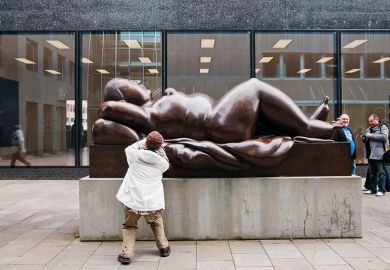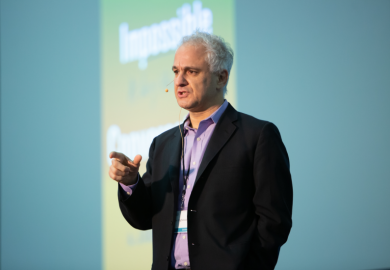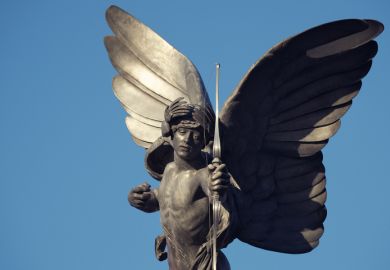We've reached a turning point in the study of moral behaviour, says Oliver Curry, with consensus about its evolutionary nature.
What is morality, and where does it come from? Is moral goodness a recent cultural invention that masks a fundamentally selfish nature or is it rooted in our species' long evolutionary history as social animals?
Recent scientific developments point to evolution. Evolutionary theorists have discovered several ways in which natural selection could favour genes that build social, co-operative and altruistic individuals. Genes can spread if they help copies of themselves that reside in other individuals - that is, in other family members (kin selection). They can spread if they build organisms that team up with others (mutualism) or that do each other favours (reciprocal altruism). And they can spread if they build organisms that settle disputes over resources not by fighting but by deferring to the victors of ritual contests, by conceding to prior ownership or by sharing (conflict resolution).
Equipped with these theories, evolutionary biologists have looked for and found numerous examples of the predicted co-operative and altruistic traits in nature, including a range of social instincts in animals. Now they are beginning to find the equivalent instincts in humans, which we call "moral sentiments". And so kin selection explains our family values and incest aversion; mutualism explains sympathy, friendship and convention; reciprocal altruism explains trust, gratitude, guilt and punishment; and conflict resolution explains heroism, respect and fairness.
Frans de Waal's work with primates has been an important component of this emerging view of morality. In Primates and Philosophers , de Waal shows, using experiments and anecdotes, that the "building blocks" of morality - family loyalty, sympathy, reciprocity, revenge, gratitude, fairness, consolation and reconciliation - can be found in our nearest primate relatives. He tells of the rhesus monkeys that refused to pull a chain that provided food but at the same time delivered an electric shock to their companions; of the capuchin monkeys that - expecting to be treated fairly - threw tantrums when partners received larger rewards for performing the same task; and of the heroic chimpanzee that drowned trying to retrieve an infant from a moat.
The book - which is based on the Tanner Lectures that de Waal delivered at Princeton University's Centre for Human Values in 2004 - is only a sketch of the argument he set out in Good Natured: The Origins of Right and Wrong in Humans and Other Animals (1996). However, it has the advantage of including responses from moral philosophers - ranging from the leading utilitarian, Peter Singer, to the leading Kantian, Christine Korsgaard.
What do they make of the intrusion of science into what was once considered the exclusive province of philosophy? It is a mark of how mainstream the evolutionary approach has become that they largely agree with de Waal that humans share the "building blocks" of morality with other primates.
What's more, they agree that what makes human morality special is our ability to "stand in someone else's shoes" and see things from their perspective. This ability allows us to think about what others are thinking, to infer their desires, beliefs and intentions, and to factor these into our judgments of their conduct. We ask not just what they did, but what was their state of mind when they did it. Did he do X on purpose? Did she do Y knowingly? This ability also enables us to consider how our own actions and intentions appear to others - to become "impartial spectators" of our own conduct - and thereby moderate our behaviour to meet with their approval.
This "special" ability, which psychologists call "theory of mind", is also part of our evolved psychology. And for decades psychologists have been investigating its evolutionary antecedents, the genes responsible for it, its growth and development during childhood, its location in the brain, and how it is damaged or absent in people with autism.
And so we appear to have reached a momentous turning point in the study of morality. There is a consensus about the evolved nature of morality - from its primate building blocks to its unique human pinnacle. And, given that these are psychological mechanisms, it follows that the way to proceed must be through science. Morality has been demystified. Wrested from the hands of philosophers, it has become an ordinary object of scientific inquiry.
Oliver Curry is centre research associate, Centre for Philosophy of Natural and Social Science, London School of Economics.
Primates and Philosophers: How Morality Evolved
Author - Frans de Waal
Editor - Stephen Macedo and Josiah Ober
Publisher - Princeton University Press
Pages - 230
Price - £14.95
ISBN - 0691124477 and 0691124476
Register to continue
Why register?
- Registration is free and only takes a moment
- Once registered, you can read 3 articles a month
- Sign up for our newsletter
Subscribe
Or subscribe for unlimited access to:
- Unlimited access to news, views, insights & reviews
- Digital editions
- Digital access to THE’s university and college rankings analysis
Already registered or a current subscriber? Login



